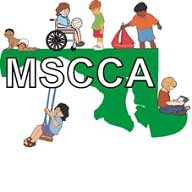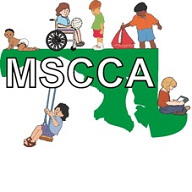Expanding Access to High-Quality Early Learning
Debbie Moore, Senior Policy Analyst, Maryland Family Network
“A high-quality early education can unlock the potential in every child and ensure that all children start kindergarten prepared for success. Because of historic investments from the Obama Administration, states and cities, more children – particularly those who have been historically underserved – now have access to high-quality early learning. We must continue our collective work so that all children have the foundation they need to thrive in school and beyond.” – U.S. Education Secretary John B. King Jr.
High-quality preschool is a critical means of expanding educational equity and opportunity by giving every child a strong start. Studies show that attending high-quality early education can result in children building a solid foundation for achieving the academic, health, and social outcomes that are of benefit to individual families and to the country as a whole. Children who attend these programs are more likely to do well in school, find good jobs, and succeed in their careers than those who don’t. And they are less likely to drop out of high school, have interactions with the criminal justice system, or experience teen pregnancy. Research has shown that taxpayers receive a high average return on investments in high-quality early childhood education relative to a number of other interventions – particularly those made later in a child’s development – with savings in areas like improved educational outcomes, increased labor productivity and a reduction in crime.
That’s why the Obama Administration has consistently called for the expansion of high-quality early education and invested more than $1 billion to support 20 states as they undertake efforts to close the school readiness gap and raise the bar on quality across their early education systems. Thanks to the Race to the Top-Early Learning Challenge grant program, hundreds of thousands more children – particularly those with high-needs and from low-income families – are enrolled in high-quality, state-funded preschool and other early learning programs than there were in 2011. And nearly 70,000 more early learning programs in the Early Learning Challenge states now participate in quality rating systems to enhance their programs, with more than 21,000 now rated highest in quality — more than double the number five years ago.
Expanding Access and Quality
The U.S. Departments of Education and Health and Human Services released a national report and state reports today that show Early Learning Challenge states are rapidly improving the quality of early learning programs while enrolling more children, especially from low- and moderate income families, in the highest-quality programs.
What’s more, thousands more children are receiving developmental and behavioral health screenings to help detect medical or developmental issues earlier, the report shows. The report comes from the annual performance reviews for the 20 states who have received Early Learning Challenge grants since 2011. These reports capture the successes achieved and obstacles overcome by states in the last year.
“The 20 Early Learning Challenge States are making important progress in improving early childhood programs for families,” said Mark Greenberg, Acting Assistant Secretary, Administration for Children and Families. “For example, nearly 70,000 early learning and development programs in these states have been evaluated to measure their quality, and this is a key step in raising program quality.”
Highlights from the grant reports:
- Nearly 70,000 early learning and development programs are now evaluated under their states’ Tiered Quality Rating and Improvement Systems (TQRIS) – an 85 percent increase since the states applied for their grants.
- The number of programs in the states’ highest quality tiers of the rating systems grew from 9,000 to more than 21,000 – a 134 percent increase since the states applied for their grants.
- Significantly more children with high needs are enrolled in programs in the highest quality tiers of their states’ rating system.
- Nearly 267,000 children with high needs are enrolled in the highest quality state preschool programs – a 263 percent increase since the start of the grants.
- Nearly 243,000 children with high needs are enrolled in the highest quality child care programs that receive federal child care subsidy funds – an 86 percent increase since the start of the grants.
- Nearly 211,000 children with high needs are enrolled in the highest quality Early Head Start/Head Start – a 189 percent increase since the start of the grants.
The Early Learning Challenge is a historic federal investment launched in 2011 that supports states in building strong systems of early learning and development to ensure that underserved children – including children from low-income and vulnerable families, as well as children with disabilities and English learners – have equitable access to high-quality programs. Forty states applied for grants, but because of limited funding, only 20 states received awards: California, Colorado, Delaware, Georgia, Illinois, Kentucky, Maryland, Massachusetts, Michigan, Minnesota, New Mexico, New Jersey, North Carolina, Ohio, Oregon, Pennsylvania, Rhode Island, Vermont, Washington state and Wisconsin. These grantees are working to align, coordinate and improve the quality of existing early learning programs across multiple funding streams that support children from birth through age 5.
States step up to the challenge
All 20 states under the Early Learning Challenge have made tremendous progress in expanding high-quality early education.
For example, in California, the community colleges and universities have agreed to articulate the foundational courses that can be transferred from two-year to four-year institutions for students working to earn their bachelor’s degree in early childhood education, allowing providers to begin their coursework at a low-cost community college and continue on at a four-year institution to earn their bachelor’s degree without having to re-take classes and incurring additional cost. In Maryland, the Coalition for Family Engagement is using parent-child learning parties to help children and their families make a successful transition from community-based early childhood programs to public schools. New Jersey developed guidelines that highlight best practices in first- through third-grades to assist educators with fusing practices that are both academically rigorous and developmentally appropriate for young students.
King will visit two Early Learning Challenge states – Colorado and Delaware – this week to get an up-close look at the work they are doing to expand high-quality early learning.
With the $45 million grant Colorado received in 2012, the state has:
- Launched a new TQRIS, Colorado Shines, and increased the number of programs participating from 473 programs to more than 4,400;
- Created a new Professional Development Information System, which has nearly 14,000 registered users completing more than 45,000 online courses; and
- Began creating a common, statewide progression of credentials and degrees for early childhood professionals.
With the $50 million grant Delaware received in 2012, the state has:
- Created a new state agency dedicated entirely to early learning, the Office of Early Learning, and increased the total number of programs in Delaware Stars, the state TQRIS four-fold, from 134 to 565, with more than 374 programs rated at the highest quality;
- Conducted more than 19,571 comprehensive student health screenings for children; and
- Conducted family outreach at hundreds of community events across the state, reaching more than 33,000 parents to increase public awareness about the importance of quality early learning for young children and how families can use Delaware Stars as the guide to find high-quality early learning programs for their young children.
Early learning research
This year, the Education Department’s Institute of Education Sciences created a new research network that will develop reliable information and useful tools to improve early childhood education and support successful transitions from preschool to elementary school. The research teams will study state and local policies and practices, classroom and instructional factors and achievement of students over time. The research is being conducted over six years in urban, suburban, and rural settings, and includes preschool programs in at least six states—California, Nebraska, North Carolina, Massachusetts, Ohio, and Virginia.
In addition, the Education and Health and Human Services Departments are releasing new resources today on how states can better align preschool with K-12 education to ensure the benefits of early education are not lost once students go to school.
• A literature review of research over the last decade on how students can maintain the benefits of preschool attendance, including how preschool is aligned with K-12 schools, as well as how educators can effectively differentiate instruction.
• A letter from King and Health and Human Services Secretary Sylvia Burwell supporting the Departments’ joint Policy Statement on Family Engagement from May. Through the policy statement, the Departments aim to support and encourage states, districts, schools, and public and private early childhood programs, including child care and Head Start, to take action to develop and implement effective family engagement policies and practices. A recent report from the National Academies of Sciences, Engineering and Medicine, sponsored by the Departments, shows that family engagement is an essential component of improving schools and outcomes for all children and youth.
Invest in the future
Expanding access to high-quality early childhood education is among the smartest investments that we can make as a country. That’s why over the last three years, President Obama has called upon Congress to expand access to high-quality preschool for every child in America, proposing investments that support a continuum of early learning opportunity, beginning at birth and continuing to age five. His 2017 budget proposal includes expanding high-quality early learning programs through two key programs:
• $75 billion over 10 years for the Preschool for All proposal to provide universal high-quality preschool programs for all 4-year-olds from low- and moderate-income families.
• $350 million for Preschool Development Grants, an increase of $100 million over the FY 2016 funding level, to help states lay the foundation for universal public preschool.
The Departments also have called on early education teachers to be paid more, including releasing a report in June highlighting the troubling pay gap disparity for educators working with our youngest learners. The report found that preschool teachers are paid less than mail order clerks, tree trimmers and pest control workers. Child care workers make less than hairdressers and janitors. In fact, most early childhood educators earn so little that they qualify for public benefits, including for the very programs they teach targeting low-income families. The Departments have released key resources for states and districts on supporting dual language learners in early education settings, including students with disabilities in high-quality early learning Policy Statement on Expulsion and Suspension Practices in Early Childhood Settings.
In addition, President Obama has focused on building private and public sector support for high-quality early childhood education. In 2014, the President announced $330 million in new actions from the private sector to expand the reach and the quality of early childhood education. He also announced Invest in US, an initiative created by the First Five Years Fund, a bipartisan non-profit organization, in partnership with private philanthropic leaders, in response to the President’s call for action.
Please join our list serv at www.ed.gov/early-learning


 and then
and then